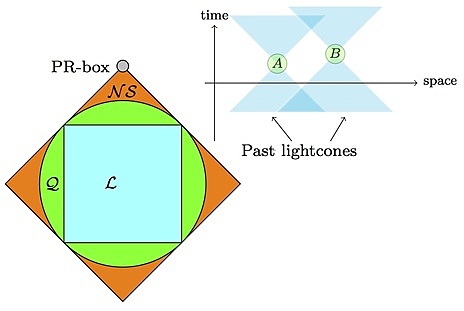Bell-nonlocality refers to the intriguing fact that certain correlations between spacelike-separated measurement outcomes cannot be explained by any local common cause. That this phenomenon follows from the prediction of quantum theory was hinted in the well-known paper of Einstein-Podolsky-Rosen in 1935 and made obvious by Bell in 1960's. Since then, the phenomenon has been verified by increasingly complicated experiments under various stringent conditions. Here, we strive to understand this phenomenon better by working within the generalized theory of nonlocality.
